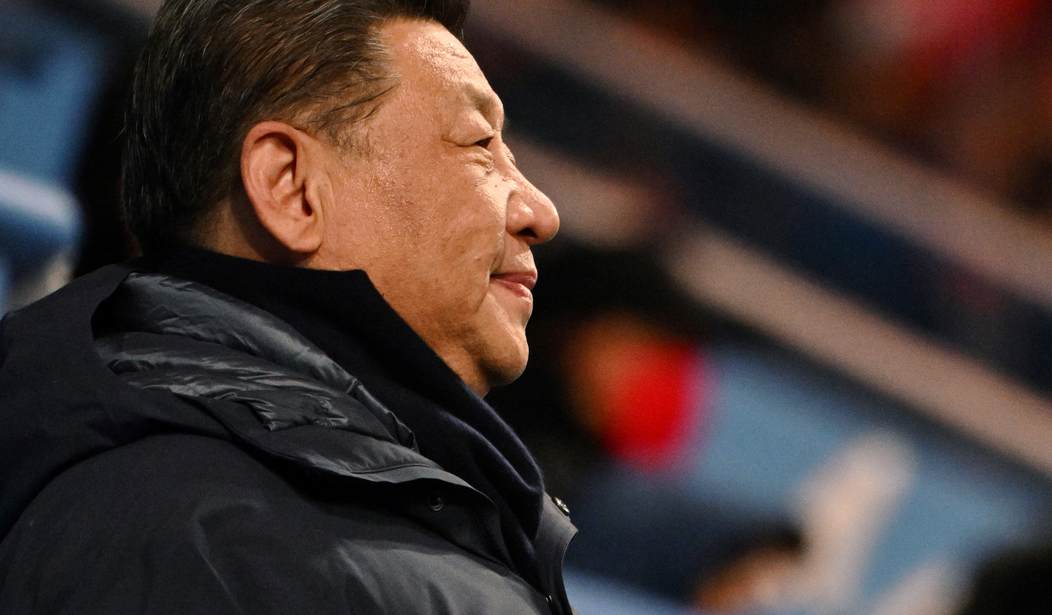Former Chinese president Hu Jintao's peculiar exit from the Chinese Communist Party's (CCP) congress meeting on Oct. 22 has ignited global discussion and intense speculation. And given current President Xi Jinping's war-waging aims, well it should.
By now tens of millions of people have seen at least part of Hu's departure video. My summary: former president Hu is seated at the front table in Beijing's Great Hall of the People, in a VIP dais seat next to his successor, Xi Jinping.
Action: Two senior staff members wearing surgical masks approach. A befuddled Hu rises, reaches for a paper, appears to speak with Xi, then pats former premier Li Zhanshu, (China's third most senior leader) on the shoulder.
Then Hu was led away.
Xinhua, China's state news agency and chief CCP global propaganda organ, claimed the 79-year-old Hu was "escorted" from his VIP seat after he began "feeling unwell." CNN -- an iffy source -- said Hu appeared "reluctant to leave." Well, I agree with that.
The BBC posited: "The two most likely reasons for his (Hu's) departure are that it was either part of China's power politics on full display, with a leader representing a former time being symbolically removed, or that Hu Jintao has serious health problems."
Beyond the BBC's either-or, both could be true, illness and a power play. Instead of physical health problems, other commentators suggested Hu may have been psychologically shaken.
So why the shakes from a former CCP bigshot? In dictatorships symbolic removal often precedes physical obliteration. Did the thought freeze Hu's brain?
Prior to Hu's egress under duress Xi had removed Hu's political proteges and policy enthusiasts from the CCP's Central Committee. Denying Hu's supporters decision-making positions consolidated Xi's personal grip on power.
Recommended
Hu led China from 2003 and 2013, his two five-year terms ratified by the once-every-five years (quinquennial) party congress. His presidency was regarded by many Chinese "as a time of opening to the world." Chinese citizens had reasonable access to the internet. Hu's opening echoed Deng Xiaoping's "opening-up and reform policies" designed to create a market economy within China's authoritarian socialist state.
After Deng died, China's president was expected to hold office for two terms, reflecting the CCP's commitment to collective leadership, a dictatorship's way of saying the system considered the opinions of senior autocrats and tried to balance the interests of party factions.
Hu stepped down and ceded office to Xi.
Alas. Prior to this year's congress, Xi revised Party term limit rules. Removing Hu's admirers and revising the rules all but guarantees Xi's position as China's supreme leader for the rest of his life.
China is a face culture. "Face" is important in every culture. Think of American politicians backtracking a blatant lie to "save face" -- i.e., avoid humiliation.
Asian "face cultures," however, take the concept several steps further. The CCP's face culture has Mafia rules. The CCP suffers from systemic ineptitude and authoritarian narcissism, but don't let the world know. The CCP face police treated Wuhan's conscientious doctors as criminals and suppressed their warnings about COVID-19.
Charles Custer of thoughtco.com writes: "Chinese society is quite conscious of hierarchy and reputation among social groups. People who have good reputations can buoy the social standing of others by 'giving them face.'"
Before the world Xi staged a face assassination of Hu's reputation. No corpse to dispose. Within China Hu's de-faced existence demonstrates Xi's power.
Revving China's economy isn't Xi's game. War is Xi's aim, a war to seize Taiwan that leads to a big one with the U.S. As Xi calculates, given the Biden administration's haplessness, the war ends in a stalemate. With American weakness exposed, America's Asian allies kowtow to Beijing and Xi's China reigns preeminent in east Asia.
Kowtow is so apt. With Hu's face assassination, Xi is effectively China's emperor.
























Join the conversation as a VIP Member